Islamabad asks US for access to civilian nuclear technology
Pakistan stresses the need for access to peaceful nuclear technology as a socioeconomic imperative
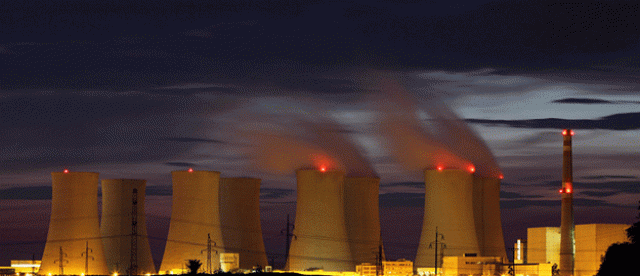
Pakistan stresses the need for access to peaceful nuclear technology as a socioeconomic imperative. PHOTO: FILE
US Undersecretary of State for Arms Control and International Security Rose Gottemoeller and Pakistan’s Foreign Secretary Aizaz Ahmad Chaudhry co-chaired the 7th round of the US-Pakistan Security, Strategic Stability, and Nonproliferation (SSS&NP) Working Group on Tuesday, according to a statement issued by the Foreign Office.
The two delegations had a productive exchange of views on issues of mutual importance, including international efforts to enhance nuclear security, peaceful applications of nuclear energy, nonproliferation, export controls, regional stability and security.
“Pakistan stressed the need for access to peaceful nuclear technology as a socioeconomic imperative,” the statement said. But it did not say whether the American side gave any positive response to Pakistan’s request. In the past, Washington turned down such demands from Islamabad citing concerns over the security of the country’s nuclear arsenal.
The statement, nevertheless, did say that the United States expressed full confidence in Pakistan’s indigenous efforts to strengthen nuclear security. It also welcomed Pakistan’s efforts to strengthen export controls and border security, including through ongoing efforts for installation of radiation portal monitors at border crossings as well as Pakistan’s hosting of International Atomic Energy Agency (IAEA) training activities at its Nuclear Security Centre of Excellence.
The US also welcomed Pakistan’s efforts to harmonise its strategic trade controls with those of the Nuclear Suppliers Group and other multilateral export control regimes.
Both sides emphasised the desirability of continued outreach to integrate Pakistan into the international nonproliferation regime. The two sides reaffirmed the high importance both countries attach to preventing the proliferation of Weapons of Mass Destruction (WMD) and their means of delivery to states as well as non-state actors.
The US and Pakistan resolved to work together to achieve the objectives of United Nations Security Council (UNSC) Resolution 1540, and noted that both have consistently supported and implemented relevant UNSC resolutions.
The Pakistan delegation welcomed the understanding reached between the Islamic Republic of Iran and P5+1 on April 2 and underscored the importance of resolving the nuclear issue peacefully. It also expressed its earnest hope that the parties concerned will be able to finalise a comprehensive settlement.
The US underscored its continued efforts to realise the agenda set forth in President Obama’s 2009 Prague speech, including the importance of commencing negotiation of a Fissile Material Cutoff Treaty (FMCT) in the Conference on Disarmament (CD), noting its readiness to address all issues raised in the course of negotiations, as allowed for in the CD 1299.
Pakistan underlined its preference for a broader Fissile Material Treaty (FMT) that addresses the asymmetries in existing stocks and highlighted that Pakistan’s position on the FMT will be determined by its national security interests and the objectives of strategic stability in South Asia.
Both sides noted the high priority that arms control has for the international community.
Pakistan noted its continued support for the Comprehensive Nuclear-Test-Ban Treaty (CTBT)-related resolutions in the United Nations General Assembly, and its consistent stance that it will not be the first in its region to resume nuclear testing.
Pakistan also reiterated its commitment to Credible Minimum Deterrence and to pursue measures in the region aimed at building confidence and lessening the risk of armed conflict.
The US and Pakistan emphasised the importance of meaningful dialogue and progress in this area and expressed the hope for lasting peace in South Asia and the resolution of outstanding territorial and other disputes through peaceful means.
The delegations discussed international efforts aimed at improving nuclear security with a central role of the IAEA including through a high-level focus by the Nuclear Security Summit process and the Global Initiative to Combat Nuclear Terrorism.
In this context, both countries expressed their desire to see the 2016 Nuclear Security Summit result in strengthened nuclear security architecture. Accordingly, both countries aspired to ratify the Amendment to the Convention on the Physical Protection of Nuclear Material in accordance with national laws and procedures.
Both delegations took note of the entry into force of the Arms Trade Treaty. The delegations discussed issues related to the Chemical Weapons Convention (CWC) and the Biological Weapons Convention (BWC) and would continue such consultations.
Published in The Express Tribune, June 4th, 2015.

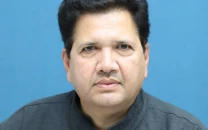
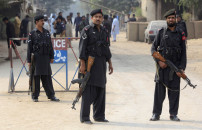
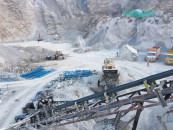


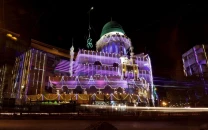












COMMENTS
Comments are moderated and generally will be posted if they are on-topic and not abusive.
For more information, please see our Comments FAQ